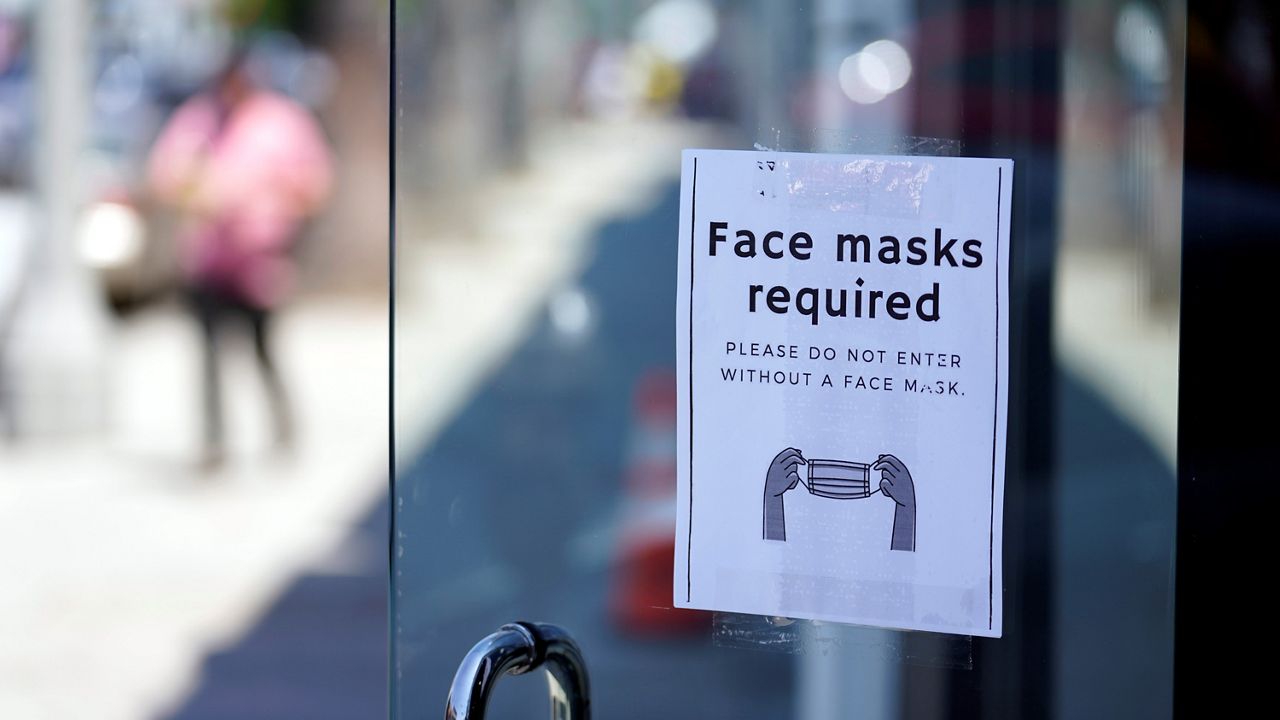At least one major city and a number of schools across the country are beginning to reimplement mask-wearing mandates as cases of COVID-19, driven by the newer so-called “stealth omicron” variant, again begin to rise.
Since it was first identified in November, stealth omicron – or the BA.2 variant – has been spreading around the globe, driving new surges in parts of Asia and Europe. It’s now the dominant coronavirus version in the U.S. and more than five dozen other countries.
In rare cases, early research indicates BA.2 can infect people even if they’ve already had an omicron infection. COVID-19 vaccines appear just as effective against both kinds of omicron, offering strong protection against severe illness and death.
As of April 10, the seven-day moving average for COVID cases in the U.S. was 28,927, up from a weekly average of 25,877 cases the Sunday before, per CDC data. Fortunately, hospitalizations and deaths do not seem to be increasing at the same rate as cases – at least, not yet – as the seven-day average for deaths decreased from 582 on April 3 to 500 on April 10.
But in some areas, where caseloads are particularly high, officials are not taking any chances.
Philadelphia became the first major U.S. city to reinstate its indoor mask mandate on Monday after reporting a sharp increase in coronavirus infections, with the city’s top health official saying she wanted to forestall a potential new wave driven by an omicron subvariant
Confirmed COVID-19 cases have risen more than 50% in 10 days, the threshold at which the city’s guidelines call for people to wear masks indoors, said Dr. Cheryl Bettigole, the health commissioner.
“If we fail to act now, knowing that every previous wave of infections has been followed by a wave of hospitalizations, and then a wave of deaths, it will be too late for many of our residents,” said Bettigole, noting about 750 Philadelphia residents died in the wintertime omicron outbreak. “This is our chance to get ahead of the pandemic, to put our masks on until we have more information about the severity of this new variant.”
A number of universities in the Washington, D.C. area similarly reinstated masks for their students this week or last. American University and George Washington University on Tuesday both announced they will require students to wear masks at all times when on campus, except when alone or actively drinking or eating. Both schools, which recommend students wear KN95 or N95 masks, cited the rising COVID cases in the nation’s capital as reasons for the reestablished rules.
American University had ended its original mask mandate on March 21, and will revisit the new requirements on May 9. GWU plans to keep its mask mandate through the end of the spring semester.
Other D.C.-area schools, including Georgetown University and Johns Hopkins University, had reimplemented mask mandates due to rising COVID cases on their respective campuses earlier in April.
In New York, where cases on Sunday had risen 42% from the week before, Columbia University reinstated its indoor mask mandate effective Monday, writing in part: “Based on the current situation and in an abundance of caution, non-cloth masks will be required in classrooms.”
“Continued caution in certain situations remains extremely important, particularly in indoor social settings when the vaccination status of attendees is unknown or uncertain,” Columbia SVP Donna Lynne wrote in a statement to faculty and students. “Being up-to-date in terms of COVID-19 vaccination status – i.e., to get all doses of the vaccines (primary and booster doses) as recommended by the CDC – is critically important.”
Both New York and D.C. have seen high-profile COVID outbreaks among big names in the theater and political spheres, respectively, in recent weeks.
On Broadway, several performances of the comedy “Plaza Suite” were canceled after Matthew Broderick tested positive, followed by his wife and co-star, Sarah Jessica Parker, in early April. Daniel Craig, too, has been sidelined from his revival of “Macbeth.”
In Washington, at least 72 people tested positive for the virus after attending the Gridiron Dinner last week, representatives for the club told multiple outlets last week. Those who attended and later tested positive include Attorney General Merrick Garland, House Speaker Nancy Pelosi, D-Calif., New York Mayor Eric Adams, Agriculture Secretary Tom Vilsack and Commerce Secretary Gina Raimondo.
Across the country in Texas, Rice University last week also reinstated its masking policy for students and faculty on campus, save for those actively eating, drinking or teaching a class, citing a “significant rise in the number of positive cases reported in our community.”
The reimposed mask rules come as the federal government’s mask mandate on public transportation is set to expire on Monday, April 18.
When asked if the government plans to extend the federal mandate on public transportation beyond next week, White House press secretary Jen Psaki on Monday pointed reporters to the Centers for Disease Control and Prevention, saying in part: “It's a decision made by the CDC, so they will make that decision. And I'm not aware of a decision being made at this point, but I would certainly point you to them.”



